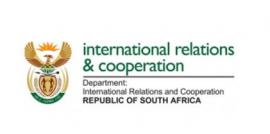
South Africa, currently serving as Vice-President, is participating in the Fifth Review Conference of the Convention on the Prohibition of the Use, Stockpiling, Production, and Transfer of Antipersonnel Mines, also known as the Mine Ban Treaty, in Siem Reap, Cambodia.
According to the Department of International Relations and Cooperation, the Mine Ban Treaty is a multilateral agreement aimed at eliminating anti-personnel landmines due to their indiscriminate nature and the humanitarian consequences they cause.
Adopted in 1997 following the Oslo Diplomatic Conference chaired by South Africa, the treaty prohibits the use, production, transfer, and stockpiling of anti-personnel mines.
Anti-personnel mine means a mine designed to be exploded by the presence, proximity, or contact of a person and that will incapacitate, injure, or kill one or more people.
“In line with its core goals, the convention mandates the clearance of contaminated land, the destruction of stockpiles, assistance to victims, and promoting universal adherence to the treaty and its effective implementation,” the department explained.
The Fifth Review Conference, which is currently underway, will address specific challenges in implementing the convention.
These include securing adequate funding for mine clearance, advancing technological solutions to speed up the clearance process, and improving the rehabilitation and reintegration of landmine survivors.
Strengthening international cooperation and partnerships between states, international organisations, and non-government organisations (NGOs) will be key themes, ensuring that affected countries have the resources and support they need to meet their obligations.
“It remains imperative for all countries to ratify or accede to the Convention, thereby reinforcing the global effort to eliminate anti-personnel mines.
“This is all particularly important in the context of the continued production, transfer, and use of landmines, including in current conflicts where landmines are being used despite their devastating, indiscriminate humanitarian impact.”
The department said South Africa underscored the importance of upholding the integrity of the convention and condemns the use, transfer, and stockpiling of antipersonnel mines by any actor under any circumstances.
“Such actions undermine International Humanitarian Law and pose significant challenges to global efforts towards a mine-free world.
“As a former producer and exporter of anti-personnel mines, South Africa has been active in the global process to ban anti-personnel mines. It played a prominent role in the Ottawa Process to negotiate the Treaty and was a key member of the ‘core group’ of governments responsible for developing and promoting the Anti-Personnel Mine Ban Treaty.”
According to the department, South Africa dismantled its production capacity and halted all anti-personnel landmine production by 1995, reinforcing its commitment to a mine-free world.
The country ratified the Mine Ban Treaty in 1998, and the convention came into force for South Africa on 1 March 1999.
“South Africa will continue to draw from its rich history of association with the Mine Ban Treaty to work towards an anti-personnel mine-free world.” – SAnews.gov.za


